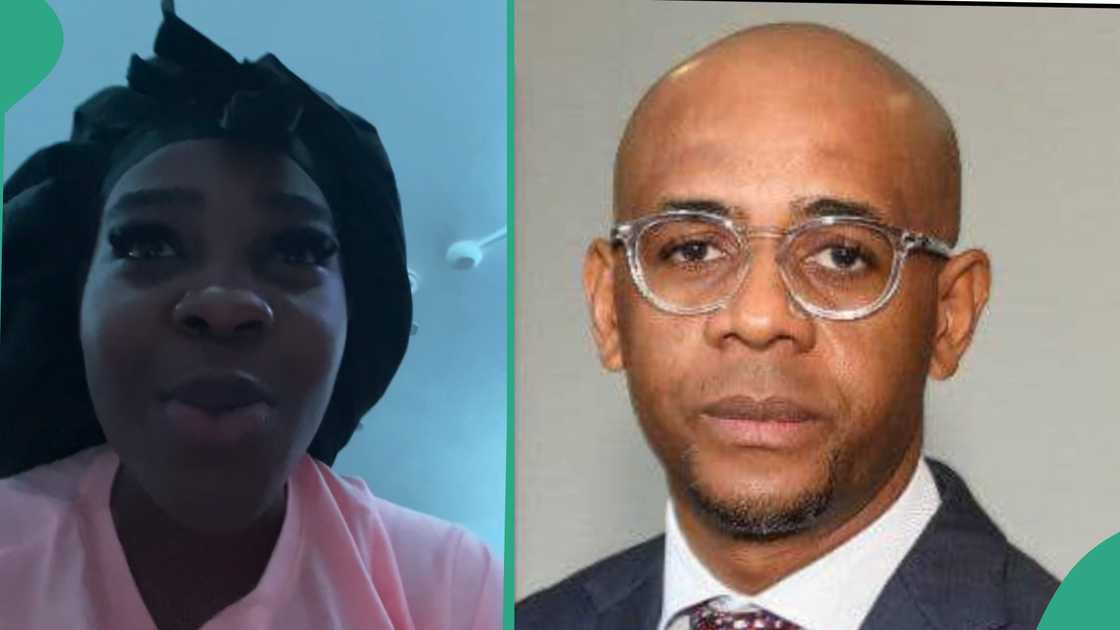The Scandal That Put Equatorial Guinea on the Map: The Baltasar Engonga Saga
In recent weeks, a scandal has erupted in Equatorial Guinea that has not only captured the attention of the nation but has also made its way around the globe. The allegations involving Baltasar Engonga, a high-ranking civil servant, and a series of explicit tapes have shed light on a country that many may not have known much about until now. A TikTok user from Equatorial Guinea, Mariaej, has voiced her thoughts on the matter, highlighting how this incident has ironically brought more recognition to her country.
 Equatorial Guinea in the spotlight due to recent events.
Equatorial Guinea in the spotlight due to recent events.
Mariaej, in a moving video, expressed relief that people are now searching for Equatorial Guinea following the scandal. She remarked that before the trending tapes, mentioning her country often led to blank stares and confusion. Now, thanks to the notoriety surrounding Engonga, inquiries about Equatorial Guinea are surging. “It’s bittersweet,” she said, “but if this brings awareness to where we are, maybe it’s a win of sorts.”
The Fallout from Engonga’s Tapes
As the scandal continues to unfold, the Equatorial Guinea government has not taken it lightly. Officials tied to Engonga’s alleged misconduct have faced immediate scrutiny, with Vice President Teodoro Nguema Obiang Mangue enforcing a strict zero-tolerance policy against behavior that diminishes public trust. This decisive action has included the suspension of multiple officials within the relevant ministries.
This response signals a significant shift in the way the government plans to deal with issues of corruption and ethical conduct, especially in the wake of what has been labeled by many as a severe breach of public trust. “We need to restore integrity in our leadership,” said Nguema Obiang, promising a thorough investigation into the scandal. Similar sentiments have been echoed by citizens as they awaken to the reality of their nation’s reputation—something that had previously remained largely under the radar.
Mixed Reactions from the Public
While many citizens are grateful for the newfound attention and the official response to the scandal, reactions have varied widely on social media.
- @Nifemi.ea remarked: “I’ve always known Equatorial Guinea… then again, I’m a nerd, but that man has done a madness.”
- @Kimberley M commented: “Y’all finally got the recognition. A win is a win babes.”
These comments reflect a complex mixture of pride and embarrassment among citizens. The positive aspect of increased visibility comes with challenges, as the controversy surrounding Engonga’s behavior invites scrutiny of the entire nation’s social and political landscape.
A Broader Context: Art, Politics, and Recognition
Interestingly, the scandal surrounding Baltasar Engonga’s leaked tapes is not just limited to political upheaval but echoes broader themes of societal acknowledgment and representation. Tying this to global narratives, discussions on art and politics emerge. For instance, the high-profile controversies at Documenta Fifteen serve as a reminder of how perceptions of nations can pivot dramatically with narratives that are put forth on the international stage.
Just as Mohammed al-Hawajri’s art stirred debate about the representation of Palestinians, the outrage around Engonga’s actions has caused individuals worldwide to reconsider their views on Equatorial Guinea and, by extension, Africa as a whole. The discussions on funding cultural productions amidst charges of antisemitism following Documenta Fifteen highlight the fragility of how cultures are represented and perceived, mirroring how Equatorial Guinea grapples with its identity on a global platform.
 Art often reflects societal struggles and triumphs.
Art often reflects societal struggles and triumphs.
Looking Ahead: The Future of Equatorial Guinea
As Equatorial Guinea finds itself at the center of worldwide attention, it poses an opportunity for growth and discourse. The government’s swift action against implicated officials symbolizes a potential new era of accountability, perhaps allowing for a painstaking but necessary rebuilding of institutional trust.
Mariaej’s remarks serve as a poignant reminder of the complexities of such recognition: “It brings attention, but we want it for the right reasons—not scandals but for the beauty and richness of our culture.”
As the story continues to develop, the global community watches closely, and it remains to be seen whether this scandal will mark a turning point for positive changes in Equatorial Guinea or if it will merely be a fleeting moment of notoriety, overshadowed by the weight of ongoing struggles.
Conclusion
In a world where scandals can define nations, the Baltasar Engonga incident has put Equatorial Guinea on the map—albeit under distressing circumstances. The coming months will be critical as both the government and its citizens navigate the fallout from these events, seeking not only to restore faith in their leadership but also to harness this moment to promote a deeper understanding of their cultural identity. As the old saying goes, the only thing worse than being talked about is not being talked about at all. Little did they know, this scandal would cast a bright light onto the hidden corners of Equatorial Guinea, forcing the global community to reckon with the truths and stories that lie within.
Explore more about Equatorial Guinea.
Related Articles
Tags
- Baltasar Engonga
- Equatorial Guinea
- Scandal
- Public Trust
- Cultural Awareness
- Media Spotlight
Image References
 Baltasar Engonga: Under scrutiny.
Baltasar Engonga: Under scrutiny.


 Photo by
Photo by 











